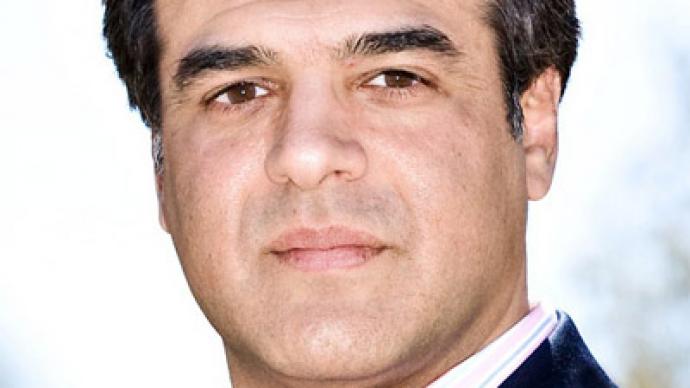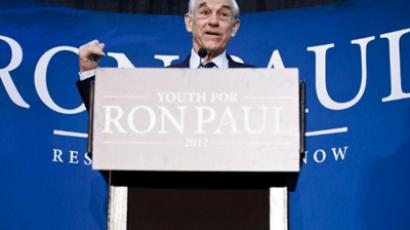Government wants to jail whistleblower for revealing CIA's 'Prime Torturer'

The former CIA analyst who went public with the US government’s torturing of suspected terrorists has suffered a major setback this week in his attempt to avoid imprisonment amid a federal witch-hunt targeting whistleblowers.
John Kiriakou, the 48-year-old counter-terrorism expert once touted by the State Department for his role in capturing dozens of key al-Qaeda operatives, will now have to prove to prosecutors that he thought his admissions of the government’s top-secret water-boarding of prisoners posed no threat to national security. Kiriakou’s federal opponents believe the whistleblower exposed to journalists the identity of two other CIA agents, one of who led the controversial torture program that aimed to bring the accused as close to death as possible to coax confessions. Kiriakou has been the subject of an intense federal investigation following a 2007 televised interview with ABC News where he confirmed that the US government’s interrogation of alleged war criminals involved water-boarding, a drowning-simulation technique that was banned under President Barack Obama two years later.After he went public, Kiriakou was charged in January 2012 under the Espionage Act of 1917, among other crimes, for blowing the whistle on state secrets. Now amid pre-trial hearings being held outside of Washington, DC, US District Judge Leonie Brinkema has ordered that prosecutors will only have to prove that Kiriakou had “reason to believe” leaking the truth behind the torture method could have caused harm.Defense attorneys for Kiriakou had hoped that the government would be tasked with having to show the former agent had intent to harm America when he went public to the press. Instead, now prosecutors will only need to prove that the former government employee was aware that his consequences had the potential to put the country in danger.The court charges that Kiriakou opened up about water-boarding to three US journalists, believed to be The Washington Post's Julie Tate, freelancer Matt Cole and the New York Times' Scott Shane, and was aware of the impact of his allegations. Prosecutors say Kiriakou revealed to the reporters the identities of two CIA staffers who personally led the torture and interrogation of an al-Qaeda operative captured overseas. Speaking on condition of anonymity, a former government official tells Firedoglake that the CIA was “totally ticked at Kiriakou for acknowledging the use of torture as state policy” and allegedly outing the identity of a covert CIA official “responsible for ensuring the execution” of the water-boarding program.Kiriakou “outted” to the reporters the identities of the CIA’s “prime torturer” under its Bush-era interrogations, Firedoglake continues, “For that, the CIA is counting on the Justice Department to, at minimum, convict Kiriakou on the charge of leaking an agent’s identity to not only send a message to other agents but also to continue to protect one of their own.”One of those agents, according to a post published this week on Cryptocomb, is Thomas Donahue Fletcher, a Virginia resident in his 60s.All three journalists are expected to fight court-ordered subpoena to be sparred offering testimony. According to Judge Brinkema, Kiriakou was well aware that disclosing state secrets — even if he morally opposed them — was in violation of his contract with the federal government.“Kiriakou was a government employee trained in the classification system who could appreciate the significance of the information he allegedly disclosed,” Brinkema wrote on Tuesday from an Alexandria, Virginia courthouse. “Accordingly, there can be no question that Kiriakou was on clear notice of the illegality of his alleged communications.”Before being targeted by the government, Kiriakou was recognized multiple times by federal agencies including the State Department for his role in ramping-up America’s assault on al-Qaeda in the aftermath of the September 11, 2001 terrorist attacks. Kiriakou has been directly linked to assisting in the capture and interrogation of Abu Zubaydah, in turn exposing the US to Khalid Sheikh Mohamed, a Kuwait national who has admitted to orchestrating the 9/11 attacks “from A to Z.” Mohammed is currently imprisoned in Guantanamo Bay, Cuba, and is expected to be tried next year before a military court.When Kiriakou went to ABC about the water-boarding of Zubaydah, he explained that the inmate was tortured for around half-a-minute. The next day, Kiriakou said, the prisoner “told his interrogator that Allah had visited him in his cell during the night and told him to cooperate.” A CIA memo unearthed in 2009 confirmed that Zubaydah had in fact been subjected to the interrogation technique at least 83 times in August 2002 before he offered information to US authorities. The administration of President Obama has charged six persons in less than four years with crimes under the Espionage Act, more than any other commander-in-chief before him combined. Kiriakou joins a roster of other alleged traitors that includes former National Security Administration employee Thomas Drake and accused WikiLeaks source Private First Class Bradley Manning.Dean Boyd, a spokesperson for the US Department of Justice, tells Bloomberg that the administration “does not target whistleblowers in leak cases or any other cases,” but that “An individual in authorized possession of classified information has no authority or right to unilaterally determine that it should be made public or otherwise disclose it.”If convicted, Kiriakou could spend upwards of 50 years in prison."John Kiriakou will become the only CIA agent connected with torture to go to jail, and he's the one who refused to commit it and condemned it publicly,” fellow whistleblower Jesselyn Radack writes of the case.















